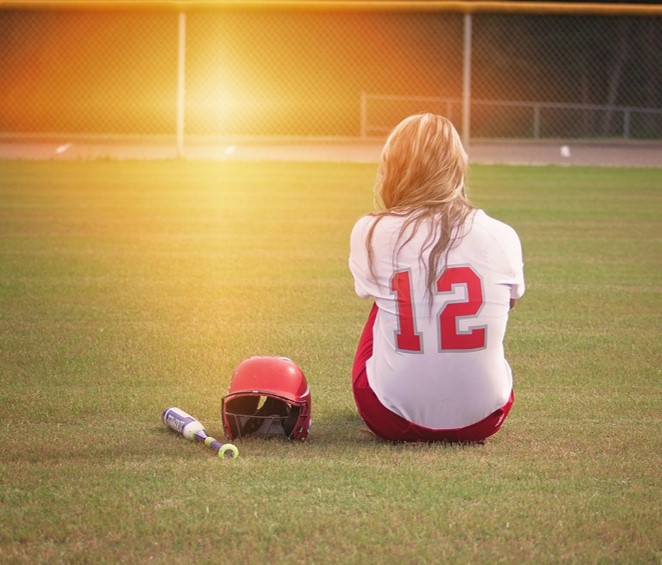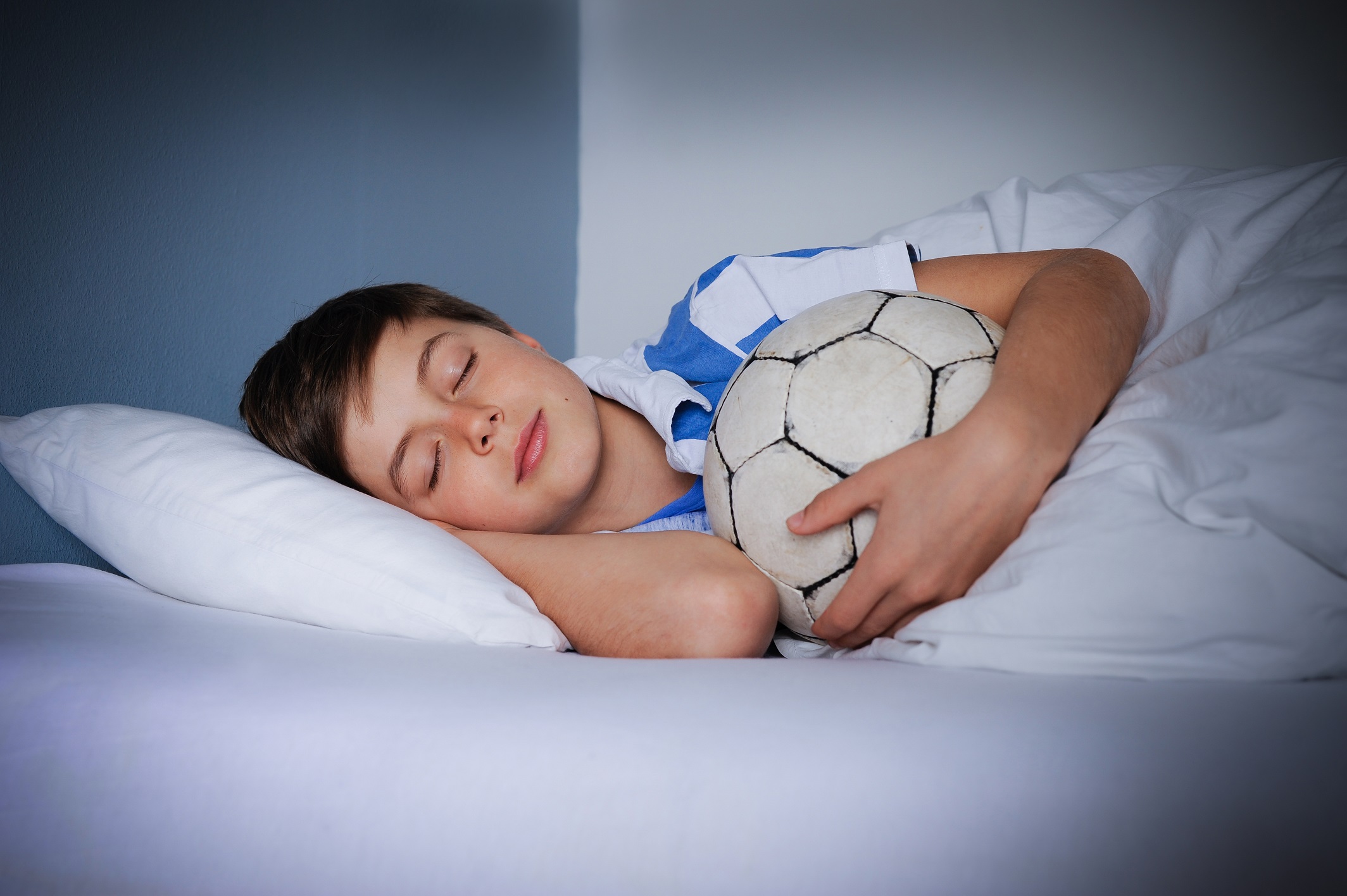Concussion Recovery
While most concussions heal relatively quickly (1-2 weeks for a return to normal activity) concussion recovery can take much longer if not treated properly. In fact, the most important aspect of speedy concussion recovery is early medical care. Studies show faster recovery when an athlete is seen by a healthcare provider within one week of injury. Often, the first person to see an athlete following injury is their athletic trainer. This is because athletic trainers are on the sidelines during practices and games – at the moment an injury occurs.
Concussion Recovery – Risks and Complications
 Concussion recovery can be seriously delayed if activity is continued following an injury. For example, 10-20 percent of individuals experience what is known as post-concussion syndrome – when symptoms persist longer than the anticipated recovery time. Importantly, continuing to play immediately following injury may dramatically slow recovery. This affects mood, sleep, appetite, and academic performance long-term. In some instances, these symptoms may last for weeks, months, and sometimes years following the original injury. As a result, treatment and recovery will vary depending on the symptoms that the individual is experiencing.
Concussion recovery can be seriously delayed if activity is continued following an injury. For example, 10-20 percent of individuals experience what is known as post-concussion syndrome – when symptoms persist longer than the anticipated recovery time. Importantly, continuing to play immediately following injury may dramatically slow recovery. This affects mood, sleep, appetite, and academic performance long-term. In some instances, these symptoms may last for weeks, months, and sometimes years following the original injury. As a result, treatment and recovery will vary depending on the symptoms that the individual is experiencing.
Second Impact Syndrome occurs when an individual gets a second concussion before they have recovered from the first concussion. In this case, there is rapid and immediate swelling of the brain. While very rare, Second Impact Syndrome is always catastrophic, with an estimated 50% death rate and 100% permanent impairment.
First…Removal from Play
When a concussion is sustained, it is critical to remove the athlete from play immediately. As stated above, continuing to play after injury will significantly delay recovery and increase the risk of Second Impact Syndrome. As an athlete, don’t stay silent if you suspect you might have a concussion! Report it, and remove yourself from play. Our athletic trainers are specialized in evaluating concussions and facilitating proper concussion treatment and recovery. They are there to help you recover and return to sports as quickly and safely as possible. In addition, athletic trainers work closely with physicians and other healthcare providers to ensure a fully supported recovery process. In fact, complete recovery is critical before returning to sports, regardless of the severity of the concussion.
While removal from play and rest are the recommendation for the first 48 hours following injury, there are many additional steps athletes can take to help speed concussion recovery.
Concussion Recovery the Right Way
Light Exercise
After the first 48 hours, light exercise is recommended even if symptoms are still present. Typically, this includes activities like walking or riding a stationary bike for no more than 30 minutes. At the same time, it is important to monitor your symptoms during light exercise. Specifically, activities that make your symptoms worse are not light enough. In addition, any activity where you risk an impact to the head must be avoided.
If you are having difficulty with light exercise, seek help. An evaluation with your athletic trainer, physical therapist, or concussion specialist will help you find the appropriate level of exercise.
Mental Rest
Mental rest means avoiding screen time and stimulation as much as possible. This is especially true early in the recovery process. Then, as symptoms start to resolve, you can slowly add screen time back in as long as symptoms don’t worsen. Ultimately, computer work, internet use, video games, television, text messaging and cell phone use, bright lights, loud music, loud noises, parties, concerts, driving, and school work can all delay recovery.
Good Sleep
 Make every effort to keep a regular schedule for bed time and waking up. Sticking to a schedule can make falling asleep and staying asleep much easier. This is important because the brain needs rest to recover, and sleep provides the best environment for healing to occur. Click this link for more tips on good sleep for teens provided by Children’s Hospital of Orange County.
Make every effort to keep a regular schedule for bed time and waking up. Sticking to a schedule can make falling asleep and staying asleep much easier. This is important because the brain needs rest to recover, and sleep provides the best environment for healing to occur. Click this link for more tips on good sleep for teens provided by Children’s Hospital of Orange County.
Help with School
Some people need extra help to perform school-related homework and classroom work. In fact, academic accommodations protect the brain from over-use during healing. Your physician, or a specialist at The Center Concussion Clinic can provide academic accommodation paperwork to the school. As your symptoms decrease, accommodations will gradually be removed.
Keep it Calm
Daily activities, basic chores, and interacting with friends should all take place in a low-key environment. In addition, you should take frequent rest breaks if you start to feel tired or fatigued. One strategy is to break up activities into short 10 minute intervals throughout the day, resting in between. While rest is important, gentle activity is also encouraged, so mix it up.
Healthy Diet
A healthy and balanced diet is always important, but even more so when recovering from a concussion. Also, stay hydrated with plenty of water.
Medical Support
You don’t have to do this alone! If your symptoms are not getting better, there are many healthcare professionals that can offer additional therapy for specific concerns. Some of these include physical therapy for headaches, balance, exercise intolerance, and vision impairments.
NOWcare at The Center, offers immediate concussion evaluation with no appointment. NOWcare is available MONDAY – FRIDAY 9 A.M. – 4 P.M. with same day ImPACT testing, if needed. Click here for more information.
Next, Dr. Ugalde’s weekly Friday Concussion Clinics at The Center offer support to those experiencing longer-term concussion symptoms. Call 541-322-2214 for more information.
In addition, if your child plays high school sports in Central Oregon, your high school athletic trainer is available during school hours. Find your high school athletic trainer HERE.
Concussion Recovery – Return to Sports
As symptoms resolve, you will begin to focus on returning to sports. At this point, a graduated return-to-play protocol will be overseen by your healthcare professional. Initially, the steps include light activity and slowly increased in intensity. Sport specific activities will follow as long as you remain symptom free. Prior to participating in non-contact practice, you will complete a neurocognitive test, known as ImPACT. This test shows if you have returned to your baseline and the normal mental function you had before your injury. The final step is gaining full clearance from your physician, and completing a full contact practice without symptoms before participating in competition. Complete this last step, and you are safe to return to sports without restriction!
GET YOUR CHILD BACK IN THE GAME SAFELY
We are passionate about getting Central Oregon youth the care they need when they have experienced a concussion. To this end, we follow a research-based model of management in treating concussions. Like you, our focus is on getting your child healthy, and safely returning them to the activity they love.
Additionally, we strive to provide the most current concussion information on these pages. However, if you do not find what you are looking for here, please contact us.
The content is not intended to be a substitute for professional medical advice, diagnosis, or treatment. See our Terms of Use for more information.
